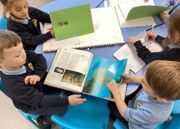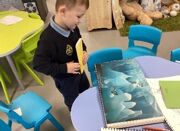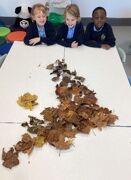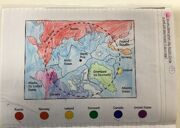Geography
Geography at Buntingford First School will empower students with the knowledge to appreciate our rapidly changing environment both near and far from home. A combination of traditional maps, fieldwork and digital tools are to always be at the heart of our geographical investigations.
Through studying geography our students will become global citizens of the 21st century and be able to visualise geography in all current affairs. Furthermore, our geography students will develop outstanding interpersonal skills which increases their employability for the future.
Why is Geography important?
Geography helps us to make sense of the world around us, better understand the places we live in, learn about and visit, why they matter and how they are connected to a globalised world.
Through geography, we encounter different societies and cultures and learn to appreciate the incredible diversity of landscapes and peoples.
In geography, we face questions of what it means to live sustainably in an interdependent world and learn to value and care for the planet and all its inhabitants.
 |
 |
EYFS investigate oceans and made a fact book. |
When is Geography taught?
Geography is taught through thematic units. The Satellite View maps out which thematic units feature this subject and clearly shows the objectives taught.
How is Geography taught?
Geography is taught through a combination of subject knowledge, geographical skills, enquiry and fieldwork. Learning takes place both inside and outside the classroom.
 |
Maps Map of the United Kingdom and The Arctic Circle in KS1. |
 |
Where do we learn about in Geography?
We learn about the following locations:-
Local Geography
Asia
China
Russia
India
Egypt
Africa
Madagascar
South Africa
Benin
Europe
Scotland
Greece
Rome
Australasia
Fiji
Arctic Circle
What do we learn about in Geography?
We learn about:-
Landscapes
Human and physical features
Landmarks
Physical systems and processes
Environments
Settlements
Trade
Biomes
Climate
How do we assess and monitor Geography?
In EYFS, we work towards the aims set out in the Development Matters framework related to Understanding of the World so that a child can reach their Early Learning Goal by the end of Reception.
Ongoing assessment informs our teacher’s decision-making process; notifying us when pupils are ready to take the next steps while also providing the flexibility for teachers to respond to the needs of the individual child.
Teachers ask questions or offer statements eliciting information regarding the children’s knowledge and make continuous observations of the pupils’ actions and discussions to inform their assessments.
Teachers have a clear view of where the learning journey is going, in skills as well as content to maximise the impact of their on-going assessment.


